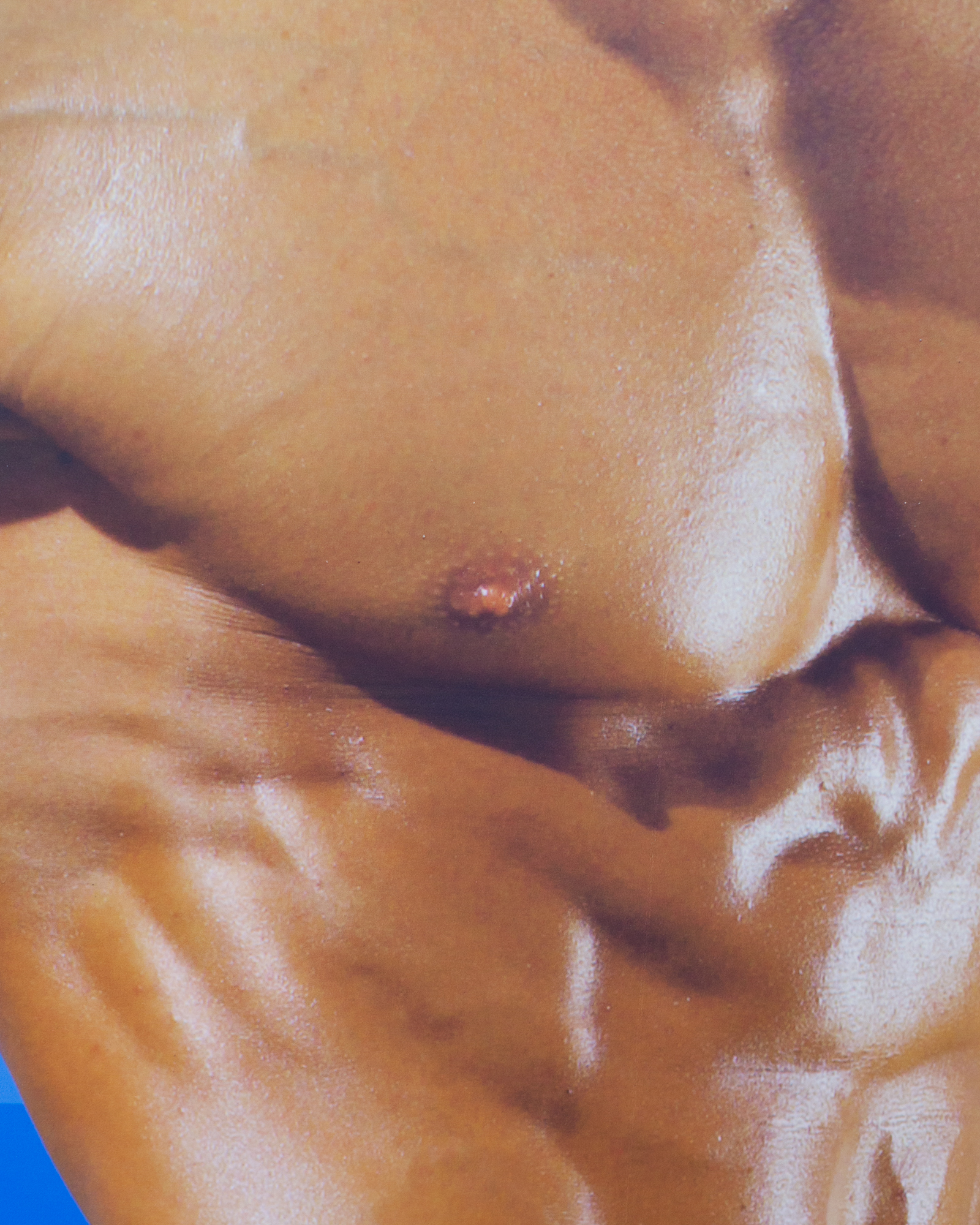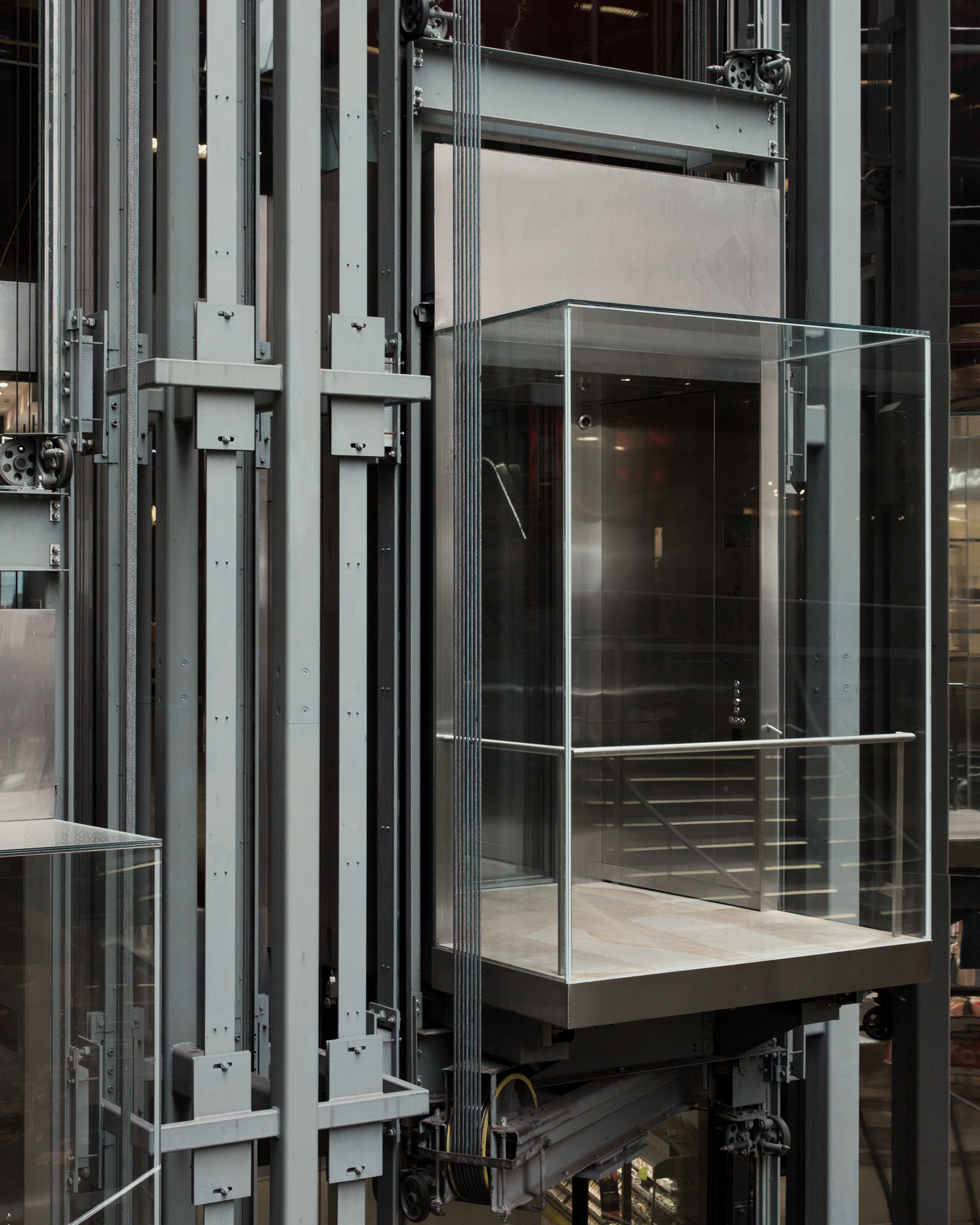Sophie Gladstone – You may also like
WORDS BY IZABELA RADWANSKA ZHANG
It began with a portrait of the girl with short blonde hair, staring into space with vacant eyes, habitually chewing on her lip. It seems as if time is passing her by to no end. “I call it anxious desire,” says Sophie Gladstone, who recently graduated with a BA in photography from Middlesex University. “The gormless and adoring expression - I thought it was quite an accurate representation of how we look at our screens.”
The feeling of mindless scrolling through social media platforms is all too familiar to the vast majority of us, wasting away hours of our days and nights. Staring at our phones and tablets, we are consumed by hundreds of images of trend-driven products, glamorous fashion, defined six packs and chic furniture and plant arrangements, which more often than not leave us feeling isolation, resentment and longing for things that we don’t have. “The desire to be better people and connect with others through social media has been corrupted by businesses capitalising on people’s misery,” says Gladstone. Her project, You may also like, is an illustration of just this.
With an interested in social issues, Gladstone set out to make a project about something that was relevant to the pressures of the present day. She became increasingly aware of her own torment with social media, “wanting to project this wonderful life to others - how healthy you are, how happy you are,” saying it became very “narcissistic,” and making her feel, “disconnected”. Looking to those around her, she found they were experiencing the same pressures - to buy more, to post more, to share more.
For example, the “smug” avocado, as Gladstone calls it, features prominently. Despite being around for years, the fruit has become a symbol of health, seen everywhere from toast toppings to t-shirt prints. A trend that was made popular by Instagram influencers, is now the go-to superfood screaming “if you eat well then you’re a good person,” says Gladstone. “Nobody cared about it before”.
Another image, a mould of a jaw full of teeth, is also representative. “Teeth are symbol of our healthy and wealth,” she says. “The upkeep and the diet is something you have to be able to afford.” The mould is Gladstone’s own - something she was given by her dentist after having a white cap placed onto a filling. Something purely functional she explains, “something that projects the illusion that I am well and happy”.
Making the project was a lesson in itself, with the photographer gaining a new perspective over the abundance of the issue. She understands that it isn’t just women, for example, and that these issues extend far beyond wanting to be thin and attractive. “There’s not any member of society that isn’t told that their status couldn’t be better,” she says. “The tools are different, the way it is communicated is different and the things are different, but the message that you’re not good enough is universal.”
While Gladstone doesn’t deny the useful functions of platforms such as Instagram - the facilitation of communication and research for example, there is also the undeniable business model where money is generated off the back of people’s insecurities. Nevertheless, being more mindful of these problems has given the photographer a renewed confidence that “people aren’t just accepting it anymore, which is exciting. We are thinking about how we could move in another direction, and feel better about ourselves, rather than crushed.” She adds: “I hope the work evokes something that allows people to recognise something and be a bit less harsh on themselves, because everyone is affected by it.”






